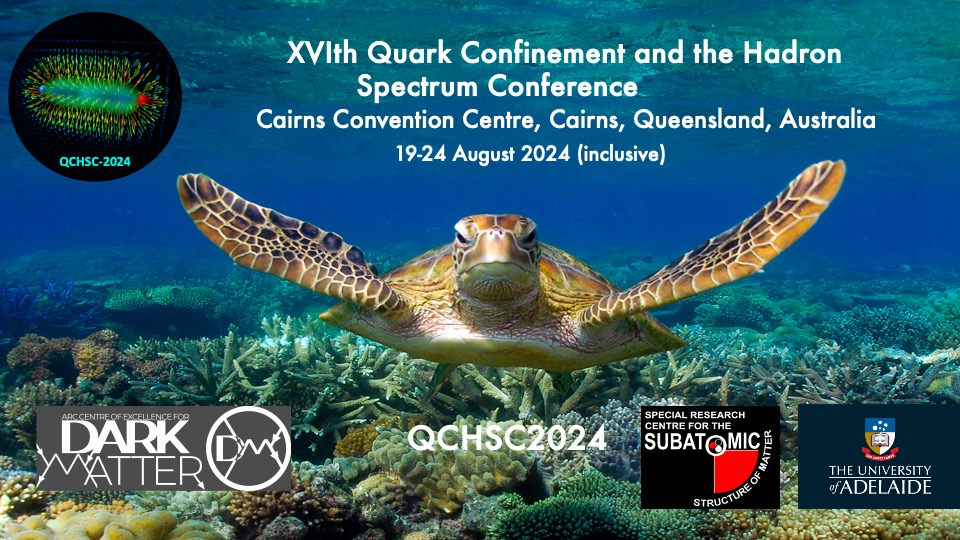Speaker
Description
We present a unified approach to the transition from hadronic matter to quark matter where hadrons are treated as bound states of quarks which dissociate at high densities due to quark Pauli blocking. We demonstrate that a sudden switch of the quark mass from a sufficiently high value to mimic quark confinement to its current mass value is compatible with a smooth crossover behavior of the chiral condensate and agrees well with the results of recent lattice QCD simulation for 2+1 flavors. The newly developed approach makes use of a cluster virial expansion formulated in terms of a generalized Φ-derivable approach to multi-quark correlations with bound and continuum states in their spectrum [1]. Our model can be used to obtain thermodynamic functions, consistent with lattice QCD simulations at zero chemical potential, also at finite chemical potentials where lattice QCD simulations have the sign problem. Conclusions for the chemical freeze-out of multi-quark clusters in heavy-ion collisions as well as for primordial black hole formation and compact star evolution are drawn.
[1] D. Blaschke, M. Cierniak, O. Ivanytskyi, G. Röpke, Thermodynamics of quark matter with multiquark clusters in an effective Beth-Uhlenbeck type approach, Eur. Phys. J. A 60 (2024) 14

